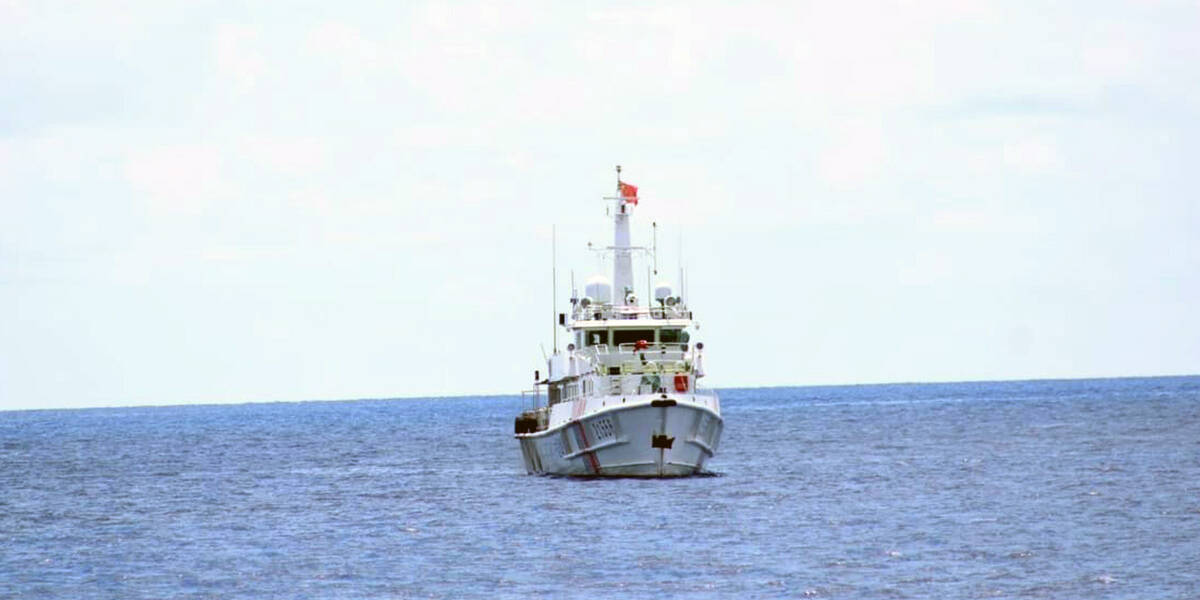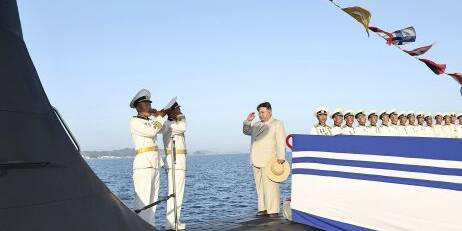Author: Stephen Nagy, for Pacific Forum
On Nov. 27 Canada released a long-delayed Indo-Pacific Strategy. The strategy has five interconnected strategic objectives:
- Promote peace, resilience, and security
- Expand trade, investment, and supply chain resilience
- Invest in and connect people
- Build a sustainable and green future
- Canada as an active and engaged partner to the Indo-Pacific
These priorities reflect the intersection of domestic politics and a convergence with other like-minded countries on strategic imperatives for the Indo-Pacific. This includes understandings of the challenges that China presents for the post-World War 2 rules-based order. It will potentially influence the evolution of the region away from a rules-based order to one that redefines well-established norms such as democracy, human rights, and rule of law, core values Canada and like-minded countries share.
Domestically, the Trudeau government has championed diversity, reconciliation, and environmentalism. It has succeeded in assembling a Cabinet that represents Canadian diversity. Diversity has also been core to strengthening the quality of Canada’s bureaucracy and protecting the rights and representation at all levels of Canadian society.
Reconciliation with First Nations peoples following the revealing in 2021 of mass graves of First Nation children has taken a prominent place in national discourse. Transforming Canada’s environmental formula to help lead the fight against climate change has become central to domestic political priorities.
These priorities manifest in three pillars of Canada’s Indo-Pacific Strategy (CIPS): 1) Expanding trade, investment, and supply chain resilience; 2) Invest in and connecting people; and 3) Building a sustainable and green future pillar of CIPS.
Linking Canada’s domestic agenda to address injustices to First Nation peoples, CIPS aims to support the economic empowerment of Indigenous Peoples through the implementation of the Indigenous Peoples Economic and Trade Cooperation Arrangement (IPETCA) in cooperation with existing partners—Australia, New Zealand, and Taiwan—and Indigenous Peoples from those participating economies. Canada is creating new formulas for mini-lateral cooperation with like-minded partners to address domestic and Indo-Pacific indigenous peoples’ developmental challenges and injustices. This includes the Pacific Islands, who faced a legacy of colonial neglect of their indigenous people but also existential environmental challenges.
CIPS envisions reconciliation with First Nations, Inuit, and Métis peoples through enhanced indigenous exchanges with regional partners and will support education and skills development for indigenous youth, continue the implementation of the IPETCA, and support the implementation of the UN Declaration on the Rights of Indigenous Peoples. These CIPS initiatives highlight Canada’s commitment to international institutions and the rules they have agreed upon; a rules-based order.
Recognizing the critical importance of diversity in governance, business, and society, the CIPS has outlined its commitment to enhanced support to women entrepreneurs to maximize opportunities in the Indo-Pacific by expanding international partnerships through the Women Entrepreneurship Strategy. It has also committed to increasing feminist international assistance programming based on partner needs and helping to protect the most vulnerable populations and support work to achieve the Sustainable Development Goals. Furthermore, CIPS support efforts toward democracy, inclusivity, accountable governance, and sustained economic growth, helping key countries in the region and working with development partners to reduce inequality and contribute to their economic prosperity.
These formulations will receive traction as they are less value-oriented. This is in contrast to initiatives to strengthen dedicated Canadian funding and advocacy to support human rights across the Indo-Pacific, including for women and girls, religious minorities, 2SLGBTQI+ persons and persons with disabilities. Many states in the region do not share Canadian views on these issues and they may complicate our engagement in the region.
Connecting Canada’s domestic commitment to combating climate change, CIPS will expand the capacity for FinDev Canada to support high-quality, sustainable infrastructure in the Indo-Pacific and provide alternative options to developing economies exploring infrastructure development. This complements the Japan’s Partnership for High-quality Infrastructure Initiative, the Blue Dot Network and the Quadrilateral Security Dialogue (“Quad”) to provide developing nations with choices for their infrastructure and connectivity.
These come with enhancing commercial representation of Canadian clean technology in priority Indo-Pacific markets and help Canada’s clean technology small and medium-sized enterprises with financial support to break into markets in the region. This builds on the already allocated $1.26 billion out of the Canada Climate Finance Commitment toward the Indo-Pacific to assist partner countries with economic recovery and infrastructure needs and to catalyze inclusive and sustainable development through Canadian capital, technology, and policy expertise.
CIPS will prioritize the Indo-Pacific as part of the Powering Past Coal Alliance, which is working to help partners advance their transition from unabated coal power generation to clean energy. The collaboration with partners in the region, Canada hopes to support a transition to cleaner energy rapidly industrializing economies that will have a significant impact on our shared environment.
The convergence with other like-minded countries on strategic imperatives for the Indo-Pacific and concerns about China’s development trajectory reflect the internal debate within Canada of what kind of challenge China presents and the importance of seeing China as part of the Indo-Pacific rather than the reverse.
After a schizophrenic approach to China, CIPS recognizes China’s rapid and dramatic modernization of the People’s Liberation Army, including its offensive technological capabilities and geographic reach, its more assertive behavior and influence in the region.
To address these concerns, CIPS will promote security and stability across the region and at home by increasing military engagement and intelligence capacity as a means of mitigating coercive behavior and threats to regional security including the South and East China Sea and Taiwan Strait. Participation in the NEON Operations to enforce sanctions on North Korea, participation in Quad Sea Dragon 21 exercises, Keen Sword joint exercises, and the rotation of Canadian naval vessels in the region to contribute to naval diplomacy, maritime domain awareness activities, and transits through the Taiwan strait are all past and present activities to support a rulers-based order.
Concerns about the rise of coercive and irresponsible use of technology are reflected in CIPS. These include the spread of disinformation, ransomware, and other cyber security threats that directly affect Canadians, work to destabilize our democracy and our economy. CIPS stresses taking a leadership role in combatting these threats, investing in expertise and technology to better protect all Canadians.
Recognizing ASEAN Centrality as essential to a sustained Indo-Pacific presence, CIPS will stresses working with ASEAN and its member states to ensure full respect for international law, including the United Nations Convention on the Law of the Sea, in the South China Sea. Cooperation will stress boosting awareness of the region and enhance resilience and preparedness, as well as to protect against coercive tactics and the theft of sensitive data, technology.
Despite the significant resources that will be deployed to ensure that CIPS is impactful and sustainable, Canada will face credibility issues. First, the Trudeau government’s walk out of the initial TPP signing in Danang, Vietnam in 2017 created the impression that Trudeau’s government was not a reliable partner and did not understand the priorities of the region, trade, not progressive issues.
Second, naïve attempts to sign a FTA with China also including progressive issues and an ill-conceived visit to India with known Indian separatists has left the impression that amateurism, not pragmatism, lies at the heart of Canadian engagement with the region.
Third, the selection of the Asia Pacific Foundation of Canada (APFC) as the key organization to drive Indo-Pacific engagements seems contradictory. In May 2020, the Foundation released a high profile report entitled “Canada and the Indo-Pacific: ‘Diverse’ and ‘Inclusive,’ Not ‘Free’ and ‘Open’” followed by several high profile op-eds which rejected the idea of a free and open, rules-based Indo-Pacific order. Recently, APFC was recently a co-sponsor of the Nov. 1-2 East Asia Security Conference which invited a known denier of the cultural genocide of the Uyghurs in China and re-iterated the idea of like-minded countries and a rules-based order should not be the platforms for how Canada engages the region.
For Japan, the European Union, Australia, the United States, and ASEAN, this raises serious questions as to what will be the nature of CIPS engagement with an organization that has a track record of rejecting supporting a rules-based order in the region that has been the basis for post-WWII peace and stability and Canadian prosperity and values.
The original article can be found here at the Pacific Forum.
Dr. Stephen Nagy (nagy@icu.ac.jp) is a senior associate professor at the International Christian University in Tokyo, a senior fellow with the MacDonald Laurier Institute (MLI), a fellow at the Canadian Global Affairs Institute (CGAI) and a visiting fellow with the Japan Institute for International Affairs (JIIA). Twitter handle: @nagystephen1
Feature Image: Royal Canadian Navy frigate HMCS Vancouver returns to Pearl Harbor during RIMPAC 22 / U.S. Indo-Pacific Command Flickr
Related Analyses
September 15, 2024
West Philippine Sea: Several factors force BRP Teresa Magbanua to return – PCG
0 Comments1 Minute


